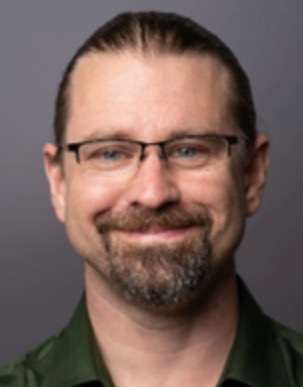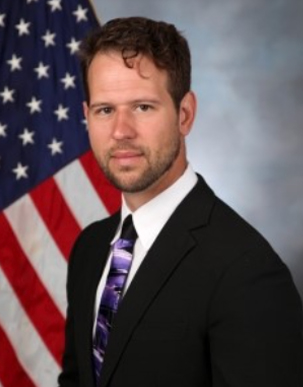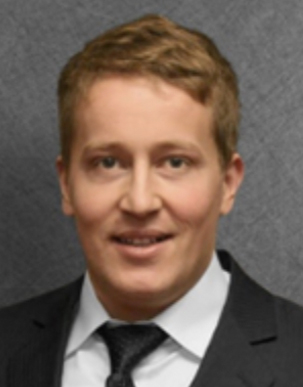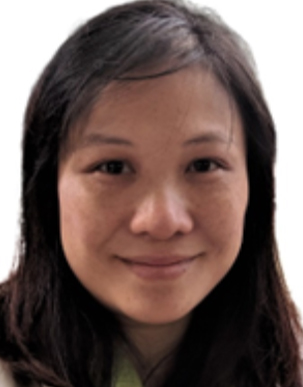2022 Speaker Series
September 8, 2022
“Social Navigation as a Joint Activity”

Ross Knepper
Amazon Robotics
Abstract: A joint activity is the unified cognitive product formed by many individual acts of several people in context. Herb Clark famously studied the way that language use by multiple participants becomes a larger coherent joint activity (exchanging information, making decisions, etc.). In this talk, I show how navigation in a pedestrian setting is similarly a joint activity in which participants transiently form a team to non-verbally exchange information and make decisions about how the group will avoid collisions. I introduce a method by which autonomous mobile robots can socially signal their intentions, detect the intentions of others, and collaboratively drive a consensus about group collision avoidance.
Bio: Ross Knepper is a Senior Applied Scientist in Robotics AI at Amazon, where he has responsibilities in both science and product delivery. He was previously a professor at Cornell University. Ross earned his Ph.D. in robotics from Carnegie Mellon University in 2011 and subsequently completed a postdoc at MIT. Ross's research specializes in robot motion planning, multirobot algorithms, and human-robot interaction. He started a new human-robot interaction team at Robotics AI in 2022.
May 13, 2022
“Assured Collaborative Satellite Autonomy”

Sean Phillips
Air Force Research Lab
Abstract: From the Sputnik launch in 1957 to today, there has been an sharp increase space objects orbiting the earth. There are currently over 27000 pieces of orbital debris being tracked by the Space Surveillance Network. There are only approximately 3300 active satellites currently in space, this number is expected to increase with the rise of global communication/internet companies establishing Proliferated Low Earth Orbit (P-LEO) massive constellations in the near future. Due to the continued increase in the population of satellites and the windowed contact times, there is a need towards allowing satellites behave with some level of safe mission level autonomy. We are interested in developing such algorithms in a networked way for close proximity interactions of multiple heterogeneous satellite vehicles towards space control and on-orbit servicing and manufacturing missions. This talk will provide a brief introduction into AFRL, cover some challenges in operating in the space domain, and some recent results we are investigating to address them.
Bio: Sean Phillips is a Research Mechanical Engineer at the Air Force Research Laboratory in the Space Vehicles Directorate and Deputy Branch Tech. Advisor for the Space Control Branch. He is a Research Assistant Professor (LAT) at the University of New Mexico in Albuquerque, NM. He received his Ph.D in the Department of Computer Engineering at the University of California, Santa Cruz in 2018 after which he joined AFRL. He received his B.S. in Mechanical Engineering from the University of Arizona in 2011 and his M.S. in Mechanical Engineering from the same university specializing in Dynamics and Controls in 2013. His research interests include modeling, stability, robust control, observer design, and simulation of hybrid systems with applications in communication networks, multi-agent, aerospace/space, and biological systems.
April 8, 2022
“Verification and Synthesis of Cyber-Physical Systems with Learning-enabled Components”

Bardh Hoxh
Toyota Research Institute
Abstract: The development of safe autonomous systems remains a fundamental challenge. As autonomous systems see use in a variety of safety-critical applications, there is a need for methods to ensure safety and correctness of their behavior. In many cases, these systems utilize machine learning components to tackle problems from perception to control. Traditional testing approaches are challenged due to the complexity of the systems and their operating environment. To alleviate this issue, verification and control synthesis can be considered as complementary approaches. In this talk, we present requirements-based approaches that can be used for verification, monitoring, and control synthesis of CPS. The methods utilize ideas from three important areas in CPS research: formal methods, machine learning, and control theory.
Bio: Bardh Hoxha is Senior Principal Scientist at Toyota Research Institute of North America (TRINA) in Ann Arbor, Michigan. His research interests include the development of practical testing and verification methods for autonomous Cyber-Physical Systems (CPS). His research draws ideas from formal methods, logics, control theory and machine learning. Previously, Bardh was an assistant professor in the Computer Science Department at Southern Illinois University. Prior to that, he completed his PhD in Computer Science at Arizona State University, where he received the Outstanding CS PhD student award. His thesis focused on simulation-based methods for testing CPS using formal requirements.
March 11, 2022
“Human- machine interaction”

Peggy Wu
Raytheon Technologies Research Center
Abstract: In this talk, Ms. Wu will discuss her ongoing research applying theories in human decision making to the design of advanced AI systems. Challenges will be grounded in examples from the areas of Human Machine Trust and Ethical Artificial Intelligence. Challenges and opportunities for industrial psychology in this area will be discussed, as motivated by the gap between decision making theory and data science applications.
Bio: Ms. Wu is an award-winning scientist with 20 years of experience combining cognitive psychology with Artificial Intelligence to advance Human Computer Interactions, Social Computing, Human Machine Trust, & Ethical AI. Applying advanced technologies such as Virtual/Augmented Reality to improve individual and team performance on Earth and in Space. Peggy is the recipient of numerous grants from the DoD, NASA, and DoE, holds 7 patents, and serves in a leadership capacity for a matrix organization of 200+ team members. She serves as a judge XPRIZE, has been an invited expert for congressional staffer and NATO briefings, NASA proposal reviewer, and conducts public engagements through the National Academies of Sciences and the UN. She is an inventor with six patents and over 70 peer reviewed publications. She excels at translating complex challenges and customer needs into technical requirements and cultivating multi-disciplinary teams in a leadership role. She is motivated to transition sound research into technologies that can result in meaningful societal impact. Peggy's work has been covered by the BBC, National Geographic, Discovery Magazine, PC Magazine, Physics Today and other media outlets.
